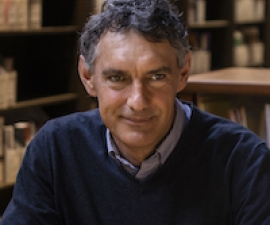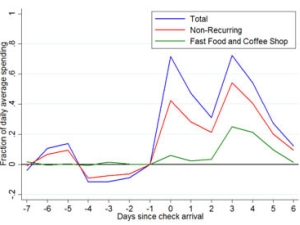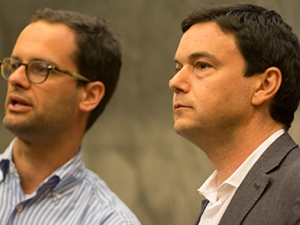

Research Bio
Emmanuel Saez is the Chancellor's Professorship of Tax Policy and Public Finance and a Professor of Economics and Director of the Stone Center on Wealth and Income Inequality at the University of California Berkeley. He received his PhD in Economics from MIT in 1999. His research focuses on inequality and tax policy. Jointly with Thomas Piketty, he created the top income share series that show a dramatic increase in US inequality since 1980. The data have been widely discussed in the public debate. His 2019 book "The Triumph of Injustice", joint with his colleague Gabriel Zucman, narrates the demise of US progressive taxation and how to reinvent it in the 21st century.
Research Expertise and Interest
inequality, taxation, redistribution
In the News
The Ultra-Rich Have Lower Tax Rates
UC Berkeley Economics Professors Emmanuel Saez and Gabriel Zucman Named 2023 Citation Laureates
National Academy of Sciences Elects Seven From UC Berkeley
Tracking Inequality in Real Time — a Powerful New Tool From Berkeley Economists
Berkeley among top U.S. universities for upward mobility
Tapping real-time financial data can improve economic policymaking
Measuring the nation’s economic health has long been a slow, costly and imprecise exercise, but researchers at the University of California, Berkeley have helped develop a new way to measure real-time consumer behavior that could vastly improve economic policymaking.
French economist Thomas Piketty’s talk on inequality draws overflow crowd
French economist Thomas Piketty, gave a talk at UC Berkeley on inequality this week. Piketty's work traces rising global income and wealth inequality – often conducted with UC Berkeley economics professor and MacArthur Foundation Fellow Emmanuel Saez.
Wall Street protests echo researcher’s findings on growing income gap
Emmanuel Saez, a UC Berkeley economist, received a 2010 MacArthur “genius” award for his research on the growing income gains of super-wealthy American households and the parallel income erosion of the other 99 percent of the nation. In a Q & A, Saez talks about the “Occupy Wall Street” movement, in light of his work.
Saez wins AEA prize for tax paper
Emmanuel Saez, the E. Morris Cox Professor of Economics at UC Berkeley, has been named by the American Economic Association as recipient of the first ever American Economic Journal: Economic Policy “Best Paper Prize” for his “Do Taxpayers Bunch at Kink Points?”
Two young faculty members named MacArthur 'genius' fellows
Two UC Berkeley faculty members, economist Emmanuel Saez and computer scientist Dawn Song, have been named MacArthur "genius" Fellows. They are among 23 recipients to receive the prestigious award – $500,000 in unrestricted funds over the next five years – announced Sept. 28 by the John D. and Catherine T. MacArthur Foundation.
Nine UC Berkeley faculty members elected to American Academy of Arts & Sciences
Nine UC Berkeley faculty members have been elected to the American Academy of Arts and Sciences, bringing to 234 the total number of faculty now members of one of the nation's oldest and most prestigious honorary societies.
Featured in the Media
For the first time in history, the 400 wealthiest Americans paid a lower effective tax rate than the working class did in 2018, according to new data presented in a book co-authored by Berkeley economists Emmanuel Saez and Gabriel Zucman. The book, called The Triumph of Injustice: How the Rich Dodge Taxes and How to Make Them Pay, explores how this trend developed and how it could be reversed. According to this reporter: "The relatively small tax burden of the super rich is the product of decades of choices made by American lawmakers, some deliberate, others the result of indecisiveness or inertia, Saez and Zucman say. Congress has repeatedly slashed top income tax rates, for instance, and cut taxes on capital gains and estates. Lawmakers also have failed to provide adequate funding for IRS enforcement efforts and allowed multinational companies to shelter their profits in low-tax nations. ... But the tipping point came in 2017, with the passage of the Tax Cuts and Jobs Act. The legislation, championed by President Trump and then-House Speaker Paul D. Ryan, was a windfall for the wealthy: It lowered the top income tax bracket and slashed the corporate tax rate." Stories on this topic have appeared in nearly 100 sources, including the Washington Post, San Francisco Chronicle Online, and the New York Times.









